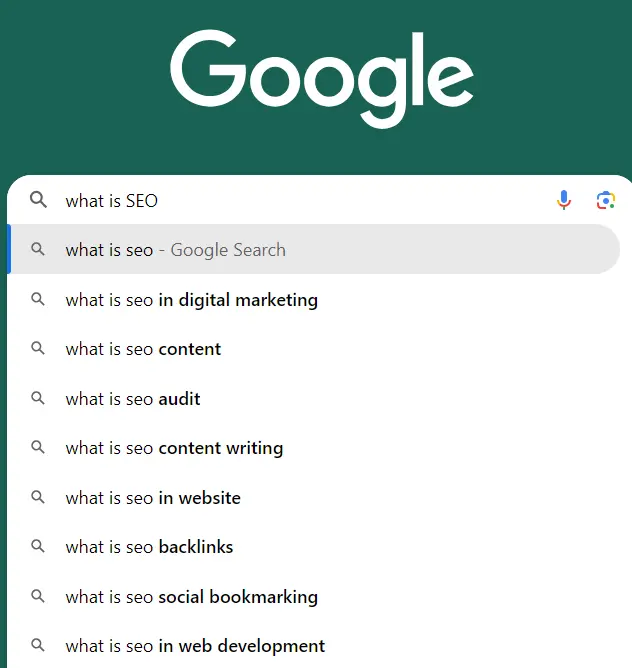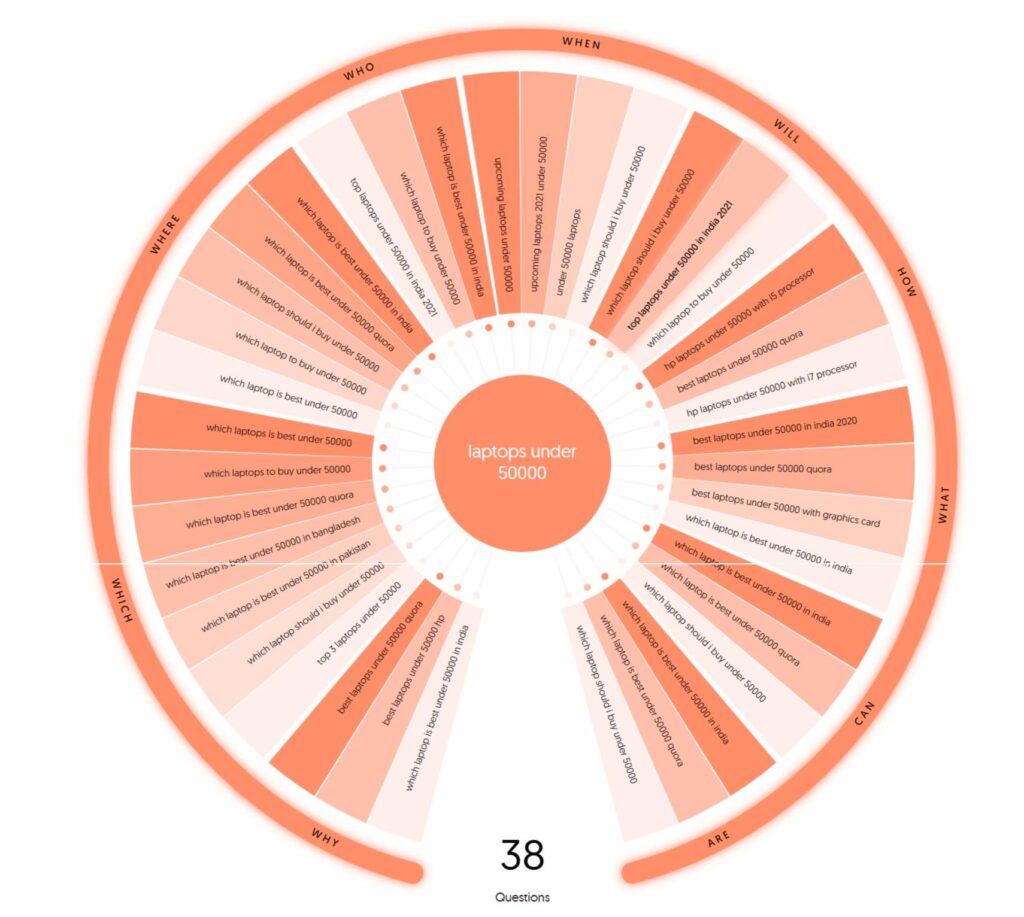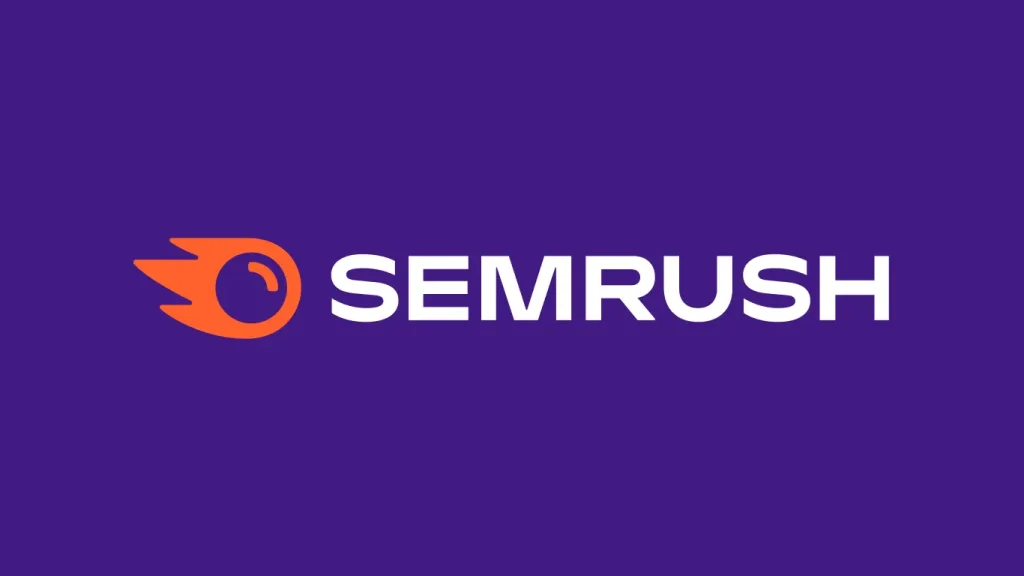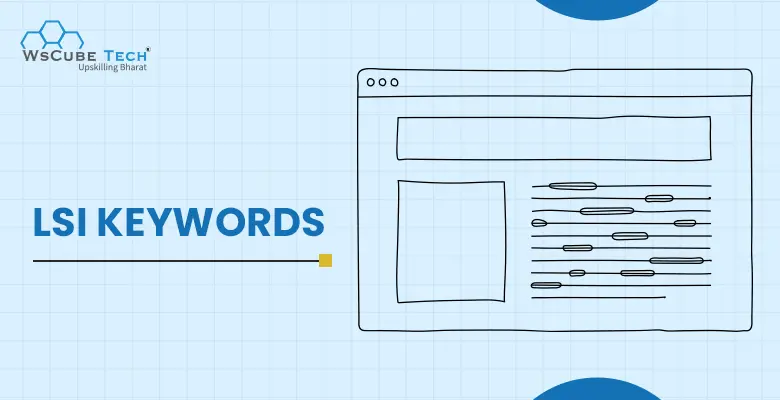Have you ever wanted to work magic with your words? Like multiple keywords with multiple diversifications? Doesn’t that sound thrilling? As a content marketer, wordplay can be fascinating. You can use similar keywords to optimize the content for a vast audience.
However, how do you know you are right when choosing keywords with different styles? We call these keywords LSI Keywords or Latent Semantic Indexing Keywords. Let’s examine how they are used in context and talk about whether or not you should use them.
What are LSI Keywords?
LSI keywords are words related to or similar to the primary keyword. They are often synonyms for the primary keyword and are widely called secondary keywords.
The primary and secondary keywords are strategically placed in the content so the information appears valuable to bots. When an end-user searches for content using the primary keyword, the results displayed might include the secondary keyword.
To better understand this, consider an LSI keyword example:
If an end-user searches for ‘shoes,’ the results might include words like ‘kicks,’ ‘footwear,’ or ‘boots’ because the latent semantic indexing system understands the semantic relationship between primary and secondary keywords.
For your content to rank higher in the SERPs (search engine result pages), consider adding primary and LSI keywords in the right places. This popular SEO tactic, or rather a requirement, helps bots recognize your website’s content.

Examples of LSI Keywords
Understanding LSI keywords and how they fit into SEO can be overwhelming. Consider a few examples of primary keywords and LSI keywords to understand:
- If the primary keyword is “coffee,” possible LSI keywords might be “caffeine,” “brew,” and “espresso.”
- If the primary keyword is “computer,” possible LSI keywords might be “hardware,” “software,” and “CPU.”
Also Read: 10 Best SEO Keyword Research Tools in 2025 (Free & Paid)
Benefits of Latent Semantic Indexing (LSI) Keywords
Latent Semantic Indexing keywords play an essential role in making SEO endeavors successful.
Here’s a quick explanation of the importance of these keywords for SEO:
1. Enhanced Relevance And Context
LSI keywords provide a layer of contextual relevance to the content. Unlike traditional keywords, LSI keywords are semantically related keywords that help search engines understand the content’s context, ensuring a more accurate interpretation of the page’s subject matter.
2. Diverse Content Optimization
Including various LSI keywords in the content allows for a broader spectrum of related keywords and concepts. This multiplicity caters to a broad audience and signals to search engines that the content is comprehensive and addresses various aspects of a particular topic.
3. Reduced Keyword Stuffing Risks
Latent Semantic Indexing keywords offer a natural and organic way to expand the semantic field of your content without resorting to keyword stuffing. By seamlessly integrating these related terms, you avoid the pitfalls of overloading your content with repetitive keywords, contributing to a more reader-friendly and search engine-friendly experience.
4. Improved User Experience
Leveraging semantic keywords contributes to a better user experience by delivering content that is not only optimized for search engines but also more informative and contextually rich for your audience. This results in increased user engagement, longer time spent on your site, and a decreased bounce rate.
5. Search Engine Ranking Benefits
Google and other search engines offer users the most relevant and comprehensive results. Using LSI keywords strategically increases the chances of search engines recognizing your content as highly relevant, ultimately improving your ranking in search results and driving more organic traffic to your website. You can become a pro in this field with an online SEO course.
6. Boost Website’s Ranking
Any SEO strategy aims to organically boost website traffic and ranking. When indexing a page, search engine algorithms consider various factors for ranking. LSI keywords help your site have a much better impact on these algorithms. Using LSI keywords throughout the text helps search engines understand your webpage and boost its ranking power.
7. Keep Visitors on Your Website
Incorporating LSI keywords throughout the content improves dwell time and reduces bounce rate by making sure your website doesn’t rank for the wrong terms.
How do LSI Keywords Work in SEO?
The computer does not identify the individual words in your content. It cannot decode the synonyms or related terms. For instance, if you put words like ‘big’ and ‘large’ together, the computer will not know they have the same meaning. This is where LSI comes into the picture. It helps by using mathematical formulas to derive relationships between various terms.
If you run LSI on a cat-related document, the computer will determine terms like cattery, pet, pet food, etc. While these words are not synonyms for a cat, they are semantically related.

Also Read: Full On-Page SEO Checklist 2025 (With Strategy)
Where to Use LSI Keywords?
These LSI keywords benefit users and search engines if used properly. They also improve your chances of ranking for other high-volume keywords semantically related to your search query.
- In the title, the tag creates a compelling feeling
- Meta tag
- Permalinks
- First and last paragraphs
- Within the content body
- Use it as Anchor text to link other posts or pages
- Use it as ALT text, as titles of images, and as a filename
- Use the page title to support the target keyword
How to Select the Suitable LSI Keywords?
It is crucial to consider the following factors when selecting the LSI keywords:
1. Search Volume
Examine the search volume of LSI keywords as well. To boost the possible organic visitors to your website, prioritize those with a respectable search volume.
2. Relevance
Ensure that the keywords you select are directly related to your core keyword and the entire content of your website. They should blend in with the rest of your material, providing helpful information and improving the reader’s experience.
Explore More SEO Concepts Explained for Beginners
| What is On-Page SEO? | What is Off-Page SEO? | What is Technical SEO? |
| What is Local SEO? | What are Keywords in SEO? | What are Backlinks in SEO? |
| What is Bounce Rate? | What is Soft 404? | What is SERP? |
Using LSI Keywords to Boost SEO
1. Select LSI Keywords Relevant to the Blog Topic
Before developing your blog, find the best-suited LSI keywords for your topic. Choose the most fitting LSI keywords based on the context of how you want your blog’s content to turn out.
For example, if you are writing a blog about “How to write a blog,” you can choose from multiple related keywords, such as “advantages of blogs,” “blog writing tips,” “SEO in blogs,” etc.
2. Analyze the Monthly Searches
Determining which LSI keywords would best complement the content can be tricky. To determine if the keyword suggestions complement your content, look into their monthly search data to determine whether the keyword fits well with your content or if you can make an original post about it separately.
If the monthly search for a relevant keyword is high, you can use that keyword to create an original post to improve SEO. If it fits the context of your content, use it there, too.
3. Include LSI keywords in Articles
As with blogs, use LSI keywords in your articles. This helps search engine crawlers determine the quality of your content and improve your domain authority. The better the search engine knows your content, the better your chances of ranking.
4. Improve Your User Experience
It is elementary to overstuff your content with LSI keywords. Use them effectively and within a limit. Search engines can penalize you for overstuffing your content with keywords.
Moreover, users are always looking for informational, cohesive, and crisp content. Focus on the user experience and only use words/terms/phrases that make sense to increase their satisfaction, which might help you earn some organic recommendations.
Also Read: Major Functions of Search Engine (How Search Engines Work)
Tools to Find LSI Keywords
Finding the Latent Semantic Indexing keywords is free. However, some SEO tools also allow you to search for LSI keywords.
Let’s look at some of the best tools to find LSI keywords:
1. Google Autocomplete

Google’s instant search feature is a straightforward way to find keywords related to your main one. Type the target keyword into Google’s search box, and you will get multiple predictions about what you might type next.
Examine for the words that appear in bold as suggestions. Make a list of relevant ones to your topic and incorporate them into your content.
2. Google’s Related Searches
Google shares a list of LSI keywords on its search engine results pages (SERP). Whenever you perform a Google search for something and scroll down to the bottom of the SERPs, you see a section called Related Searches. This section contains multiple keywords related to your search query. You can incorporate these keywords as well to diversify your content.
3. LSI Graph

This online tool helps you navigate through the LSI keywords. Enter your seed keyword and watch a map of related keywords unfold. Explore the interconnected web of phrases, identify high-value keywords, and enrich your content with relevant LSI magic.
4. Google Search Console (GSC)

Peek into Google’s mind with GSC’s “Search Analytics” report. Analyze the Queries section for terms users searched to find your content. These are goldmines for relevant LSI keywords, often long-tail phrases indicating specific search intent.
5. Answer The Public

Answer The Public unveils popular search questions related to your seed keyword. Analyze the questions, delve into the People Also Ask section, and reveal a variety of LSI keywords based on actual user queries.
6. SEMrush

For SEO powerhouses, SEMrush offers a comprehensive LSI keyword research suite. The Organic Research tool allows users to analyze competitor content, uncover their ranking keywords, and identify hidden LSI gems they might be missing. To master the art of keyword research, enroll in India’s best online SEO course!
7. Google Keyword Planner

Google Keyword Planner offers more than just keyword volume data. It also shows the keywords related to your initial keyword, a treasure trove of LSI suggestions. Filter your keywords through the Broaden your search option to uncover a wider net of semantically related keywords.
How to Use LSI Keywords?
LSI keywords are the secret sauce of SEO and can catapult your content to the top of search results. However, you need some expertise to use them effectively in your content.
Some of the best practices you can use to incorporate Latent Semantic Indexing keywords correctly are:
1. Prioritize Quality Over Quantity
Focus on incorporating relevant LSI keywords naturally, adding value to your content, not just search engines. Aim for a natural keyword density of around 1-2% for your main keyword and 0.5-1% for semantic keywords.
2. Embrace Diversity
Be creative while using the keywords. Use variations of your LSI keywords, including synonyms, long-tail phrases, and related questions. This demonstrates an in-depth understanding of the topic and helps you reach users searching for different terms.
3. Think Like Your Audience
Put yourself in their shoes. What questions would they ask? What information are they seeking? Use LSI keyword-finding tools to uncover user queries and tailor your LSI keywords accordingly.
4. Leverage Strategic Placement
While organic integration is critical, specific placements deserve extra attention. Naturally, include LSI keywords in your title tags, headers, meta descriptions, image alt text, and throughout your content.
5. Track And Analyze
Don’t be afraid to experiment! Track your keyword performance and analyze which LSI keywords drive the most traffic and engagement. Optimize your strategy based on data to improve your search visibility continuously.
6. Consider The Competition
Keep a close eye on your competitors. Use tools like SEMrush to analyze their top-ranking content and uncover the LSI keywords they’re using. This can help you identify relevant terms you might be missing.

FAQs on LSI Keywords
No, LSI keywords do not replace primary keywords. Primary keywords are still crucial for establishing the main focus of your content and optimizing for specific search queries. LSI keywords, on the other hand, complement primary keywords by providing additional context and semantic relevance. Together, they create a more comprehensive and optimized content strategy.
Long-tail and LSI keywords serve different purposes. LSI keywords focus on providing semantic relevance and context to your content, while long-tail keywords target specific, niche search queries. Further, LSI keywords help search engines understand the wider topics covered in your content, and long-tail keywords target specific and lesser competitive search terms.
LSI keywords should be naturally incorporated throughout your content. They can be used in headings, subheadings, paragraph text, image alt tags, and meta tags. The goal is to seamlessly integrate them to enhance your content’s overall relevance and depth.
Secondary keywords are additional keywords related to your primary keyword but not directly synonymous. They help provide more context and specificity to your content. LSI keywords, on the other hand, are conceptually related words or phrases derived from the analysis of a large body of text. They enhance the understanding of the context and relevance of your content for search engines.
Yes, LSI keywords significantly enhance the user experience, as these keywords make your content more relevant, informative, and natural. This helps search engines deliver more accurate search results to users, ensuring they find the information they need. By providing valuable and comprehensive content through LSI keywords, you create a user-friendly experience that satisfies their search intent and enhances their overall engagement with your website.
Conclusion
In the world of SEO, including LSI keywords is critical for increasing search engine ranks, improving user experience, and avoiding the pitfalls of keyword stuffing. By understanding LSI keywords’ significance and contextual relevance, you can optimize your website’s content and provide relevant information to your readers. This method allows search engines to comprehend the context and meaning of your material, leading to higher ranks and a more enjoyable user experience.
To keep ahead of the newest trends in your sector, use relevant LSI keywords that smoothly integrate with your content, analyze related search terms regularly, and use LSI keyword tools.
Explore Our Free Courses


